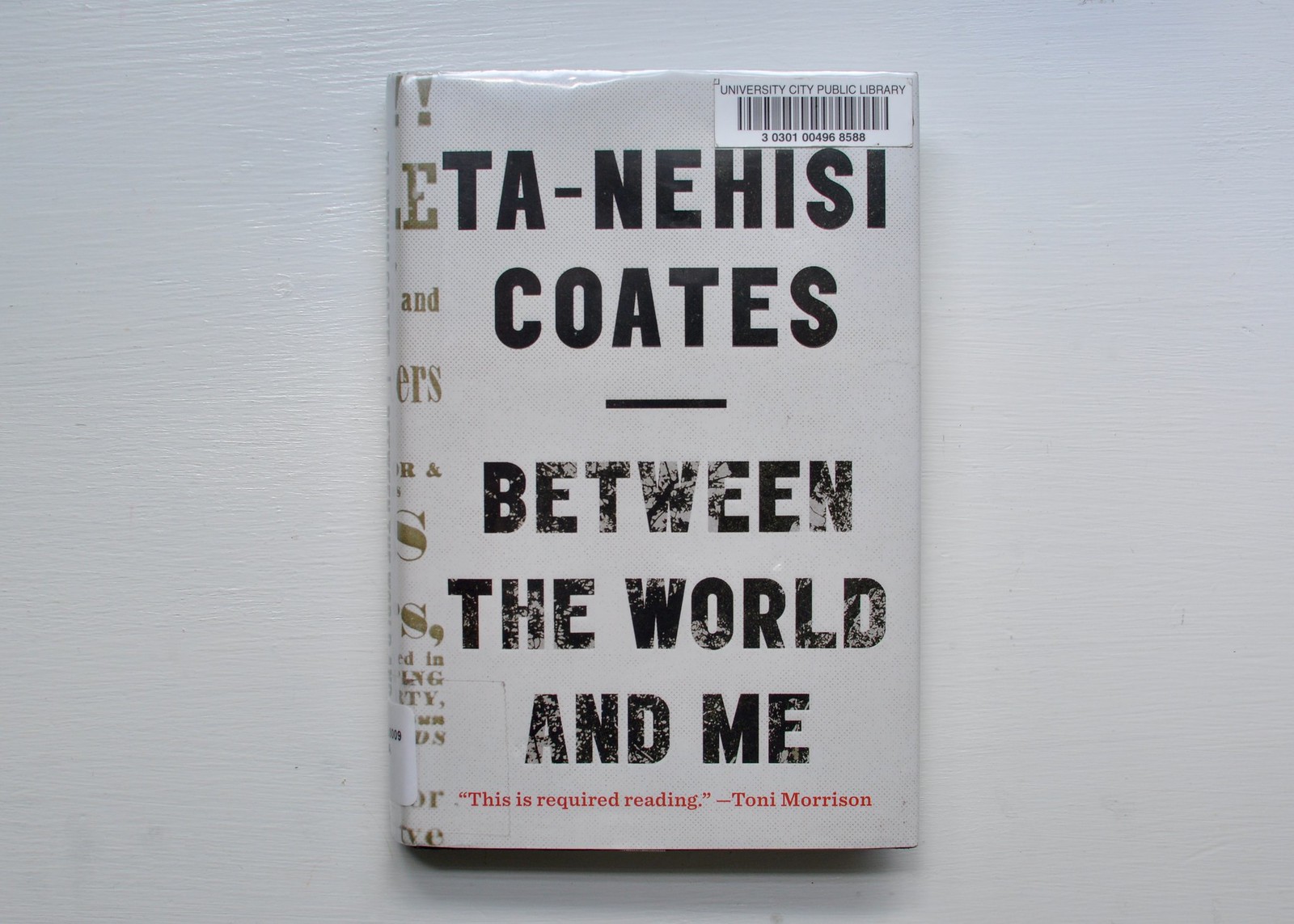Between the World and Me, by Ta-Nehisi Coates
This powerful book, written by national correspondent for The Atlantic and award-winning author Ta-Nehisi Coates, is written in letter-form to his teenage son regarding feelings, fears, symbolism, and the harsh realities of growing up black in the United States. While the book is far from optimistic, it is, I admit to sounding boring and typical, an amazingly important book. And that is where all my discomfort comes in. I will never, ever begin to understand the black experience in America, no matter how many books I read on the subject. I will, however, try my damnedest. And while this book (and any like it) won’t likely give people who consider themselves and believe themselves to be white a true sense of what it means to be black in America, it can’t hurt either.
I found myself telling Andrew early and often that I didn’t like the book, that I was struggling to read it. It is so intense, so sad, full of so much hurt, that I would read it in short bursts with a lump in my throat before putting it down for a few days and trying to work through what I had read. The truths of these experiences which I will never know, the destruction of the black body, the institutional racism that we as a country experience in daily life, the history that has been twisted and reshaped to be more American apple pie than harsh reality, it is so hard to stomach. Because it’s dark, it’s not what we believe ourselves to be.
I kept reading, even though I had to stop myself from doing before bedtime (it is not light reading, not for those who struggle to turn off thoughts before sleep — therefore, not for me to read without lying awake at night or having nightmares in which my children were lost or in danger of being hit by a car, or even one where Emil had learned to ride a motorcycle and had sped away from me and disappeared — all set in the streets of Baltimore, where much of Coates’ dialogue occurred). Instead, I read it in a crowded coffee shop and dog-eared pages I knew meant something to me and touched me in a deep, human way. Such passages spoke to me and made my heart ache, such passages about parenthood and the vulnerability and even dread of a child’s safety and place in this country. The differences between white children and black children:
“The galaxy belonged to [white children], and as terror was communicated to our children, I saw mastery communicated to theirs… This is how we lose our softness. This is how they steal our right to smile. No one told those little white children, with their tricycles, to be twice as good. I imagined their parents telling them to take twice as much.”
There are so many passages I felt moved by, and enlightened by. It was hard to read. But I’m so glad I did.


Have you read Makes Me Wanna Holler? That book was recommended to me my first year of teaching. It caused me the same pause, and I still think about it almost 10 years later. Highly recommend it.
No, Jamie, I haven’t read that one. I’ll check it out — but if it’s heavy stuff, I think I’ll wait a couple of weeks (I’m still recovering from this one). I just read Eligible, which I think you would like. It’s a fun, girly, modern remake of Pride & Prejudice, and it’s by a St. Louis native, Curtis Sittenfeld. Let me know if you want to borrow it!
The way you describe your reaction to the book is spot-on for me. I started it, got about a third of the way through it, and put it down for several weeks. I actually plan to return to it now that my days are more open and I have more time for reading besides bedtime, but it is a difficult book (and, yes an important one). Have you read Citizen by Claudia Rankine? I highly recommend.
No, Brooke, but I’ll add it to my list. Thank you!
Would love to! Sounds perfect for our September beach vacation. Thanks!
Good! I can drop it off at your house later today! We’ll need to get out of the house by then! 🙂
An extremely important book. Toni Morrison nails it on the cover.
I’ve had many people say they had to read it in small pieces; I felt like I read it in one setting. I devoured it. I read passages of it aloud to my husband, and immediately passed it onto my father, and it’s been making the rounds, once a week, to someone else. Conversations on race and racism were frequent and deliberate in my family growing up, but as I’ve gotten older, I’ve realized that is not the norm in white families.
Writing this book in the form of a letter to his son connected with me from the beginning. I had listened and read Coates’ work in pieces in the Atlantic and in various interviews, and so I was familiar with his voice, but still completely blown away by it in this book. His research and writing on mass incarceration is also a must read.
I just completed “Race, Place, and Suburban Policing” by Andrea Boyles, a friend and coworker of Brooke’s. That book was far more difficult for me to get through. I only have time to read it at night, and it made for a week or two of very restless sleep. But I couldn’t stop reading it. I highly recommend it; Boyles’ research is centered right here in Kirkwood, MO.
I have a post on this very topic in the works, specifically on having this conversation with children. Often, and from the beginning. Not easy to write, but important to voice.
Excuse our long grass, I’m out of town ?